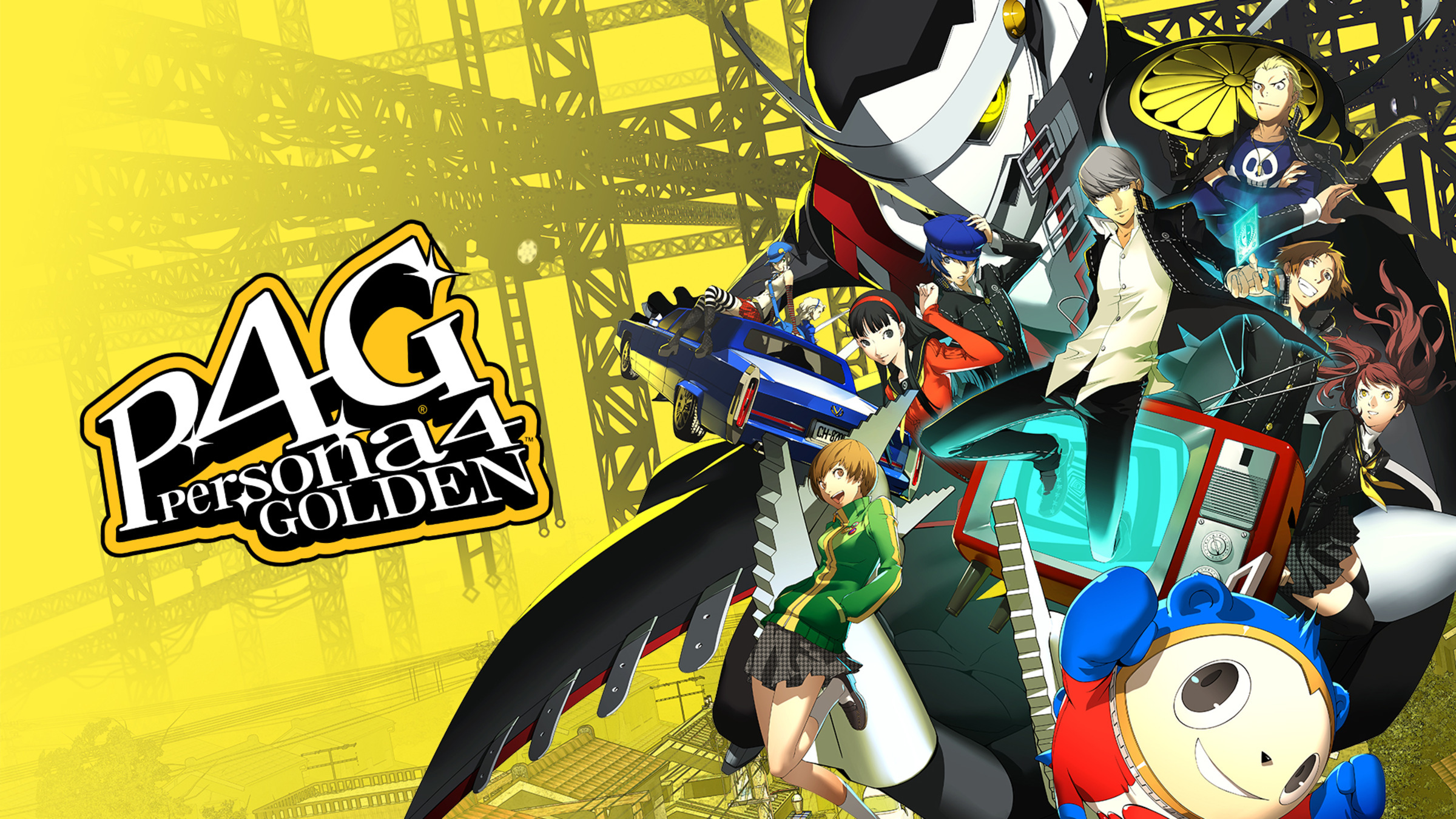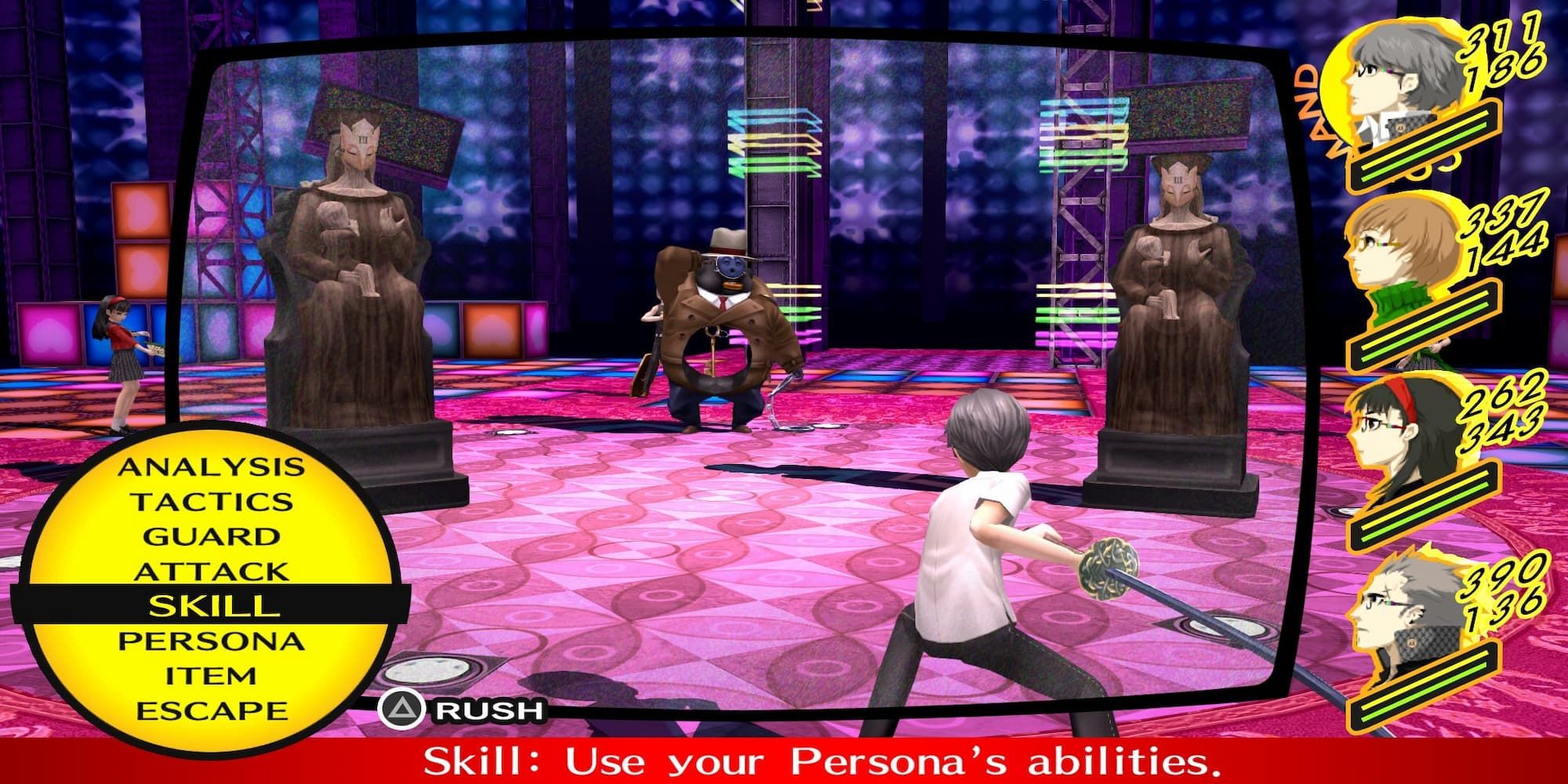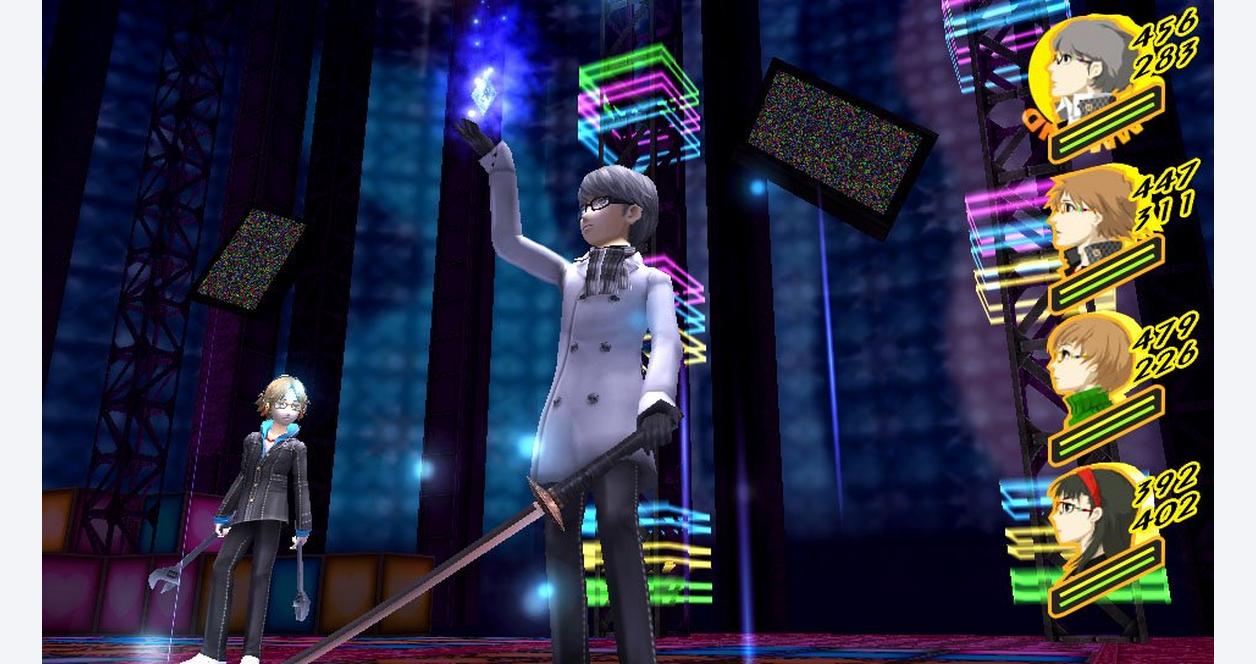
Persona 4 Golden is a game that remains pretty well covered even 15 years after its original release. It’s unlikely that this review is the first time you’ve heard of it, and you’re likely well aware of its reputation as one of the most popular entries in the series. But it’s been a decade since Golden was first released for the PS Vita. Times have changed, tastes have changed, hairstyles have changed, and the series has evolved. With a new port to a modern console, it begs the question: does Persona 4 Golden hold up? And what’s new about this version?
Let’s cover the key points for those who don’t know Persona 4 yet. Persona 4 Golden is a mix of JRPG and life simulation game, where you explore dungeons to solve serial murder cases and spend quality time with your friends to grow into a more fulfilled person. These two parts are intertwined. As you progress through the dungeons, you unlock new social connections with people around the city of Inaba and quest lines in the real world, and as these social connections are strengthened, you’ll benefit in combat and in the fusion of the titular persona.
These spirits are based on a wealth of mythological and religious symbolism. While each party member only has one persona at a time, determined by the story, the protagonist is like a blank slate. He holds multiple personas in his mind and can switch between them at will, periodically fusing less useful personas with more powerful ones throughout the game. Personas determine a character’s strengths, weaknesses, and abilities in combat, so fusing and strengthening these mythical beings is crucial to success.
Because, after all, the game isn’t that hard (there are several customizable difficulty levels), but it does require a bit of thinking. Bosses can range from easy to beat to seemingly impossible, depending on whether you have a good persona prepared for the challenge, especially considering their basic strengths and weaknesses. Exploiting weak spots is key to victory, as it grants extra turns and the opportunity to deal heavy damage.

Unfortunately, the dungeons themselves are never pretty. Simple brick-style dungeons were nothing special in the PS2 era, but the latest in the series offers more thoughtfully constructed dungeons, so a return to endless randomly generated corridors may not be as inspiring. They serve their purpose of acting as gateways to interesting fights and providing a bit of gameplay between the outstanding storyline, but they’re certainly getting old in 2023.
While the gameplay has some occasional shaky spots, the story and characters hold up beautifully. These elements are arguably the biggest draw of the title, and it remains as compelling as it was back in 2008. Once you’ve finished the story, it’s hard not to feel genuinely sad to leave the cast behind. With well over 100 hours of playtime, the connections you make with these friends feel genuine, and you really feel like this group of friends is something you made for yourself. In fact, in a series with such an incredible cast, they remain my absolute favorites. They give weight to the entire long story and are one of the best in the series.
The mysterious murders that the crew is trying to solve are intriguing, presenting a bizarre method of murder and no easy clues to uncover the motive. Before you truly understand, you will encounter several dangerous situations. The characters that end up in danger are often very personal to the characters, which can give them a strong motivation to save as many as possible.
Even if there are some quality of life quirks, nothing will stop you from playing and, more importantly, enjoying the game. However, this is true of Persona 4 Golden, released on Vita, and its subsequent port to PC. So what does this new version bring?
The improvements in this version aren’t groundbreaking, but its presence on all major platforms makes the game easier and more accessible than ever before. The game is definitely a bit better, especially considering the buttery smooth framerate. This is only marred by some weird character motion blur that can be obscured by the new framerate. This effect has been present in all previous versions of the game, and while it seems to be a stylistic choice, it holds up better on the PS2 than on modern consoles. The game is definitely better than it was before, but it’s not an improvement that will wow everyone.
:no_upscale()/cdn.vox-cdn.com/uploads/chorus_asset/file/24352147/Persona_4_Golden_3.jpg)
But better looks aren’t the most important change. This title introduces a brand new quick save system that lets you take a break during a dungeon run and return later. This is an absolute lifesaver for people who can no longer play nonstop or for people like me who have to rush off to help their kids. The time between saves in the original version was up to PS2 standards, but may be tough for today’s older generation who are used to regular autosaves.
The new difficulty setting system balances the game experience for all players, allowing you to optimize each individual setting, from damage taken and dealt to experience points and money earned. The ability to navigate each one individually is fantastic, allowing you to keep the original gameplay experience and eliminate some of the tedious grind by toggling a few options. Alternatively, you can set everything as low as possible, push through the combat, and experience the amazing story alone.
No matter how you play the game, the listening experience will support you. The voice acting is fantastic, with top-notch voice actors highlighting the depth of a diverse and unique cast. But it’s not the voice acting that really sets the mood of the Persona games apart. Persona is all about the music, and Persona 4 Golden is no exception. While its predecessor, Persona 3, relied on hip-hop and Persona 5 famously invented acid jazz, Persona 4 features a mix of pop and dance music, mixed with lots of brass and synthesizers to give the soundtrack a unified feel. He’s incredibly danceable, making it a great way to stay active in your seat during the dozens of hours the game will keep you busy.
While Persona 4 Golden is a great port of a great game, it still casts a big shadow on some parts. The series just doesn’t seem to be able to handle LGBTQIA+ issues with respect. Don’t give too much away: Two of the members of your group are very vocal about who they are, either gay or non-cis. It doesn’t take long before you find out they’re both straight or cis. While this in itself is still manageable, it doesn’t take long for the rest of the cast to mock anyone who made this initial assumption. One character goes through a gay panic, while another isn’t taken much seriously after his birth gender is revealed. It’s a shame to encounter this mid-game, and probably not a deal-breaker for most, but it does leave you hoping for better.
But don’t let that stop you. Persona 4 Golden is a great game and this version is the perfect way to play it. The characters are lovable, the story is engaging, and you won’t be able to stop until you’ve fully absorbed the entire game. Persona 4 Golden may be the highlight of the series so far. Don’t you think you deserve to treat yourself to something good?


Leave a Reply